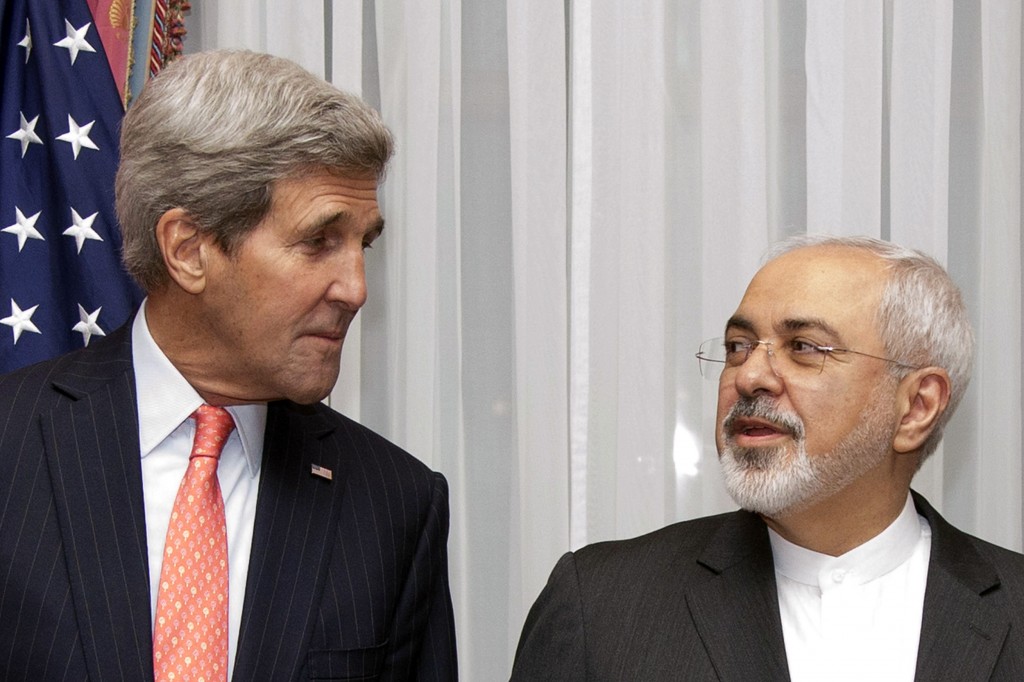We, and the whole world, are anticipating the results of US President Donald Trump’s decision to confront Iran after he announced yesterday that he will reconsider his country’s nuclear deal with Tehran.
Trump saw that Iran has violated the deal’s spirit and this is not in the interest of the US security and therefore it must be amended.
The Kingdom of Saudi Arabia and the United Arab Emirates promptly and courageously backed the US decision as it falls in the region’s interest and sends a political message to Iran, urging it to stop its battles and threats.
The decision is also in favor of the moderate voices in Iran – perhaps it would restrain extremist groups in power.
The US decision is courageous and one which we have not seen in two decades. It may be the beginning of a regional course correction, or it may at least stop Iran’s advance.
In his decision, Trump will rectify a number of mistakes that Iran has seen as implicit agreements to it to expand and threaten the security of the region and the interests of the United States, as well in Bahrain, Iraq, Yemen, Syria and Lebanon.
Iran thought that the declining role of the international community in Syria is a new sign of victory for it and “Hezbollah”, and it tried to benefit from the battle of the US-led coalition against ISIS to be granted control in Iraq.
Trump is not hasty as some say. Don’t forget that he was patient with Iran previously and signed the continuation of the US-Iran deal twice since he should be reviewing it every three months.
However, Iran did not cooperate with Washington whether in stopping its military activity in the region or quitting its military tests. Instead, Iran challenged Washington and announced that it was developing a ballistic missile system.
This time, Trump made up his mind, thereby delivering the biggest blow to Iran’s extremist wing. With this decision, Trump would send back the deal to Congress to vote on and he would then re-impose painful economic sanctions. Now, let Tehran’s government do what it wants.
The rest of the Western countries are against Trump’s decision. They want the agreement to continue, fearing Iran will again start enriching Uranium and developing its military forces as an excuse.
In fact, what President Trump is proposing is correct because he is noting that the current signed deal is not halting Iran from carrying on its military-nuclear project, but it is only postponing it.
During the period of temporary ban on enrichment, Iran is allowed to build its military equipment, such as missiles carrying nuclear warheads.
We are not underestimating the risks of Trump’s decision on the region since if the president completely terminated the agreement and faced Iran, he could open a new phase, which could lead to a greater confrontation.
What is said about President Trump as being a reckless warmonger, who acts without taking into consideration the consequences of serious global issues, such as Iran and North Korea, is not true.
The truth is that since he took over his post, Trump has given Tehran’s leaders two chances in order to respond in a positive manner towards the deal; however, they refused to meet him halfway.
Also, let’s not forget that members of Trump’s party, the Republican Party in the Congress, have had a consensus against the agreement even before Trump became president.
It is also obvious that Tehran has underestimated Trump after living eight comfortable years during Barack Obama’s time in office.
There is no interest for the world in allowing the Iranian Islamic Revolutionary Guard Corps to roam around freely in the region and allow it to lead the militias war in Syria, Iraq, Lebanon and Yemen.
By the time the ban period comes to an end and the agreement is terminated, Iran would have extended its presence in the region and established puppet governments.
Then, the West will not be able to impose sanctions or prevent Iran from enriching Uranium. Iran would have also completed establishing a support system comprised of platforms, laboratories, caches and others.
Iran’s agenda is an expansionist one and it intends to dominate the region. The agenda is not simply about building Iran’s nuclear powers for defensive purposes.
For instance, Iran and Pakistan possess nuclear weapons, but we have never seen the two countries seek expansion or wage wars.
It is wrong to view Iran’s nuclear agenda as just a mean to join the nuclear states’ bandwagon. Iran is involved in destructive wars in the region on a daily basis, none of which are for defensive purposes, but they all serve its expansionist goals.
Tehran’s intentions and persistence to challenge the world are clear from the way it has dealt with its current conflict with Washington.
The US administration stepped down for Iran in Syria and agreed to maintain Bashar al-Assad’s regime, Iran’s ally.
Yet, Tehran did not step down from any of the areas where it is fighting wars, nor did it give Trump any concessions in the nuclear deal.
